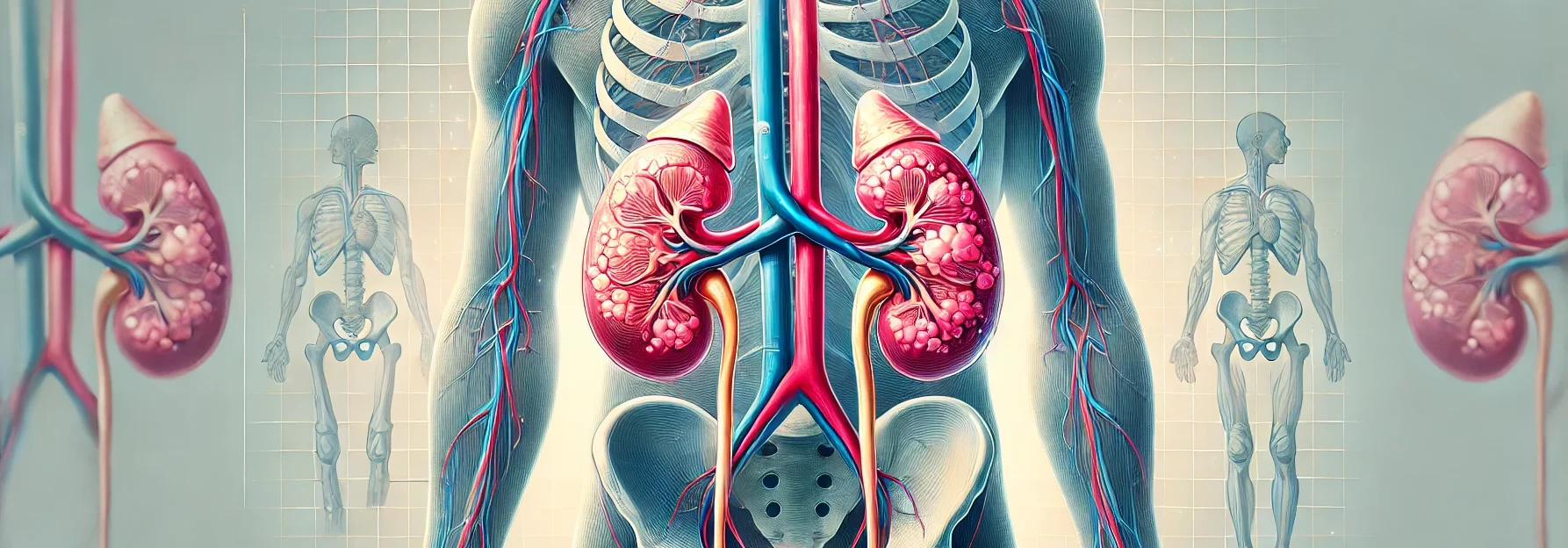The kidneys are two bean-shaped organs located on either side of the spine, responsible for filtering waste and excess fluids from the blood. Kidney cancer develops when abnormal cells in the kidney grow uncontrollably, forming tumors. The most prevalent type of kidney cancer is renal cell carcinoma (RCC), accounting for about 90% of cases. This type of cancer originates in the renal tubules, which are involved in filtering blood and producing urine.
Kidney cancer can affect individuals of all ages, but it is most commonly diagnosed in people over the age of 50. The exact cause of kidney cancer is not always known, but several risk factors contribute to its development. Early detection plays a crucial role in the successful treatment of kidney cancer, making regular medical check-ups essential for high-risk individuals.
What Causes Kidney Cancer?
The development of kidney cancer is often linked to a combination of genetic and environmental factors. Several well-established risk factors can increase an individual’s likelihood of developing the disease:
- Smoking: Tobacco use significantly raises the risk of kidney cancer. The harmful chemicals in cigarettes can damage kidney cells over time, leading to malignant changes.
- Obesity: Excess body weight has been identified as a key risk factor. The hormonal imbalances associated with obesity can contribute to cancer cell growth in the kidneys.
- High Blood Pressure (Hypertension): Chronic high blood pressure can strain the kidneys, potentially leading to the development of cancerous cells.
- Genetic Factors: A family history of kidney cancer can increase the likelihood of developing the disease. Certain hereditary conditions, such as von Hippel-Lindau (VHL) syndrome, are linked to kidney cancer.
- Occupational Exposure: Prolonged exposure to toxic substances such as asbestos, cadmium, and herbicides can increase the risk of kidney cancer.
- Chronic Kidney Disease (CKD): Individuals with CKD, especially those undergoing dialysis, are at a higher risk of kidney cancer due to prolonged kidney cell stress.
- Gender and Age: Men are twice as likely to develop kidney cancer as women, and the risk increases with age, especially after 50.
Symptoms of Kidney Cancer
Kidney cancer is often referred to as a “silent disease” because it may not present noticeable symptoms in its early stages. However, as the disease progresses, individuals may experience the following symptoms:
- Blood in Urine (Hematuria): One of the earliest and most common signs, blood in the urine may appear pink, red, or cola-colored.
- Persistent Pain in the Lower Back or Side: Unlike muscle pain, this discomfort is persistent and does not subside with rest.
- Unexplained Weight Loss: Sudden weight loss without any dietary or lifestyle changes can indicate kidney cancer or another underlying health issue.
- Swelling in the Abdomen: A lump or mass in the abdomen or side may be a sign of a growing kidney tumor.
- Fatigue and Weakness: Persistent tiredness, even after adequate rest, may be an indication of kidney cancer.
- Loss of Appetite: A decreased desire to eat or early satiety can be a symptom of advanced kidney cancer.
- Fever and Night Sweats: Unexplained fever that comes and goes or night sweats can sometimes be linked to kidney cancer.
How is Kidney Cancer Diagnosed?
Early detection of kidney cancer significantly improves treatment outcomes. Physicians use various diagnostic tests to confirm the presence of kidney cancer:
- Imaging Tests: Ultrasound, CT scans, and MRI scans help detect tumors in the kidney.
- Blood and Urine Tests: These tests check for abnormalities, such as blood in the urine or elevated levels of certain substances in the blood that may indicate kidney dysfunction.
- Biopsy: A small sample of kidney tissue is extracted and examined under a microscope to determine if cancer cells are present.
- Intravenous Pyelogram (IVP): A special dye is injected into a vein, allowing X-ray imaging to highlight abnormalities in the kidneys.
Stages of Kidney Cancer and Treatment Approaches
Kidney cancer is classified into four stages based on tumor size, spread, and lymph node involvement. Treatment options vary depending on the stage of cancer:
- Stage I (Early-Stage Cancer): At this stage, the tumor is small and confined to the kidney. The primary treatment is surgery (partial or complete nephrectomy) to remove the tumor while preserving kidney function.
- Stage II: The tumor has grown larger but remains within the kidney. Surgery is still the most effective treatment, and follow-up monitoring ensures the cancer does not return.
- Stage III: The cancer may have spread to nearby lymph nodes or major blood vessels. Treatment usually involves a combination of surgery and targeted therapies to prevent further spread.
- Stage IV (Advanced Kidney Cancer): The cancer has spread beyond the kidney to distant organs such as the lungs, bones, or liver. Treatment options include immunotherapy, targeted drug therapy, chemotherapy, and sometimes radiation therapy to manage symptoms and improve quality of life.
When Should You See a Doctor?
If you experience any of the following symptoms, it is crucial to consult a healthcare professional promptly:
- Blood in your urine (even if it happens just once)
- Persistent pain in your lower back or side
- Unexplained weight loss
- Persistent fatigue or weakness
- A noticeable lump in the abdominal or kidney region
Early medical intervention can help detect kidney cancer before it progresses, increasing the chances of successful treatment.
Frequently Asked Questions (FAQs) About Kidney Cancer
- Can kidney cancer be treated successfully?
Yes, kidney cancer is highly treatable, especially when detected early. Surgical removal of the tumor offers a high success rate, and newer therapies have improved survival rates for advanced-stage patients. - Is kidney cancer hereditary?
While genetics can play a role in the development of kidney cancer, lifestyle factors such as smoking, obesity, and high blood pressure contribute significantly to the risk. Those with a family history of kidney cancer should undergo regular screenings. - Can kidney cancer be detected early?
Yes, regular check-ups, imaging tests, and screening programs can help detect kidney cancer in its early stages before symptoms develop. - Does kidney cancer cause pain?
In the early stages, kidney cancer may not cause pain. However, as the tumor grows, persistent pain in the lower back or side can occur. - What lifestyle changes can help reduce the risk of kidney cancer?
Adopting a healthy lifestyle can lower the risk. This includes quitting smoking, maintaining a healthy weight, managing blood pressure, staying physically active, and consuming a diet rich in fruits and vegetables. - Are there alternative therapies for kidney cancer?
While conventional treatments such as surgery, targeted therapy, and immunotherapy remain the gold standard, some patients explore complementary approaches such as acupuncture, herbal supplements, or meditation to manage symptoms. However, these should always be discussed with a doctor.

